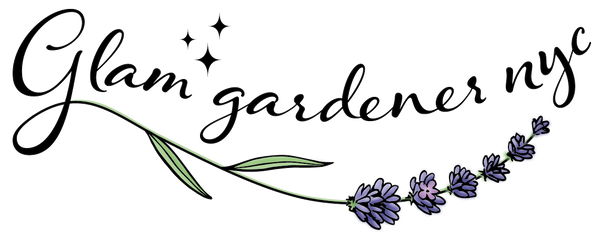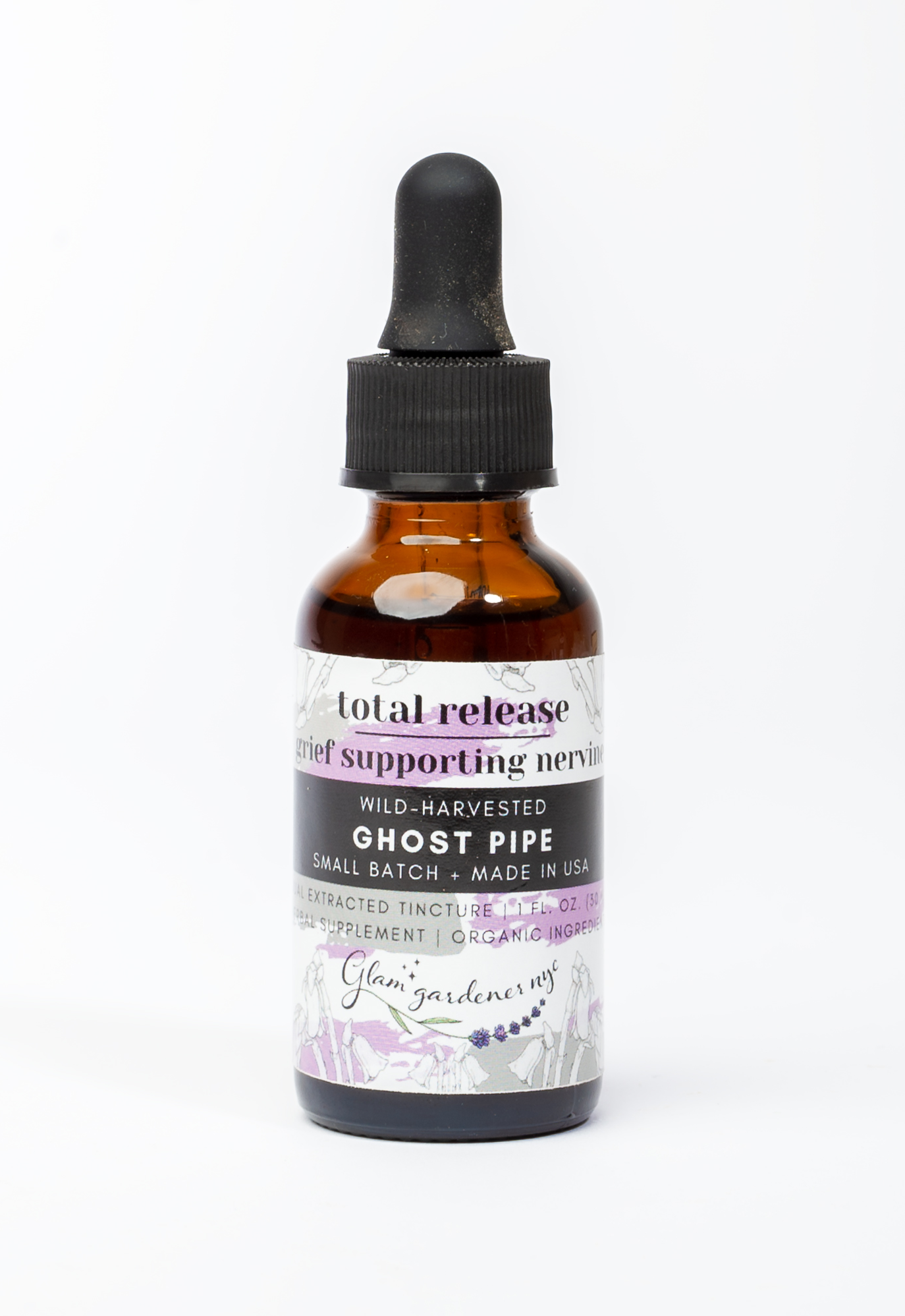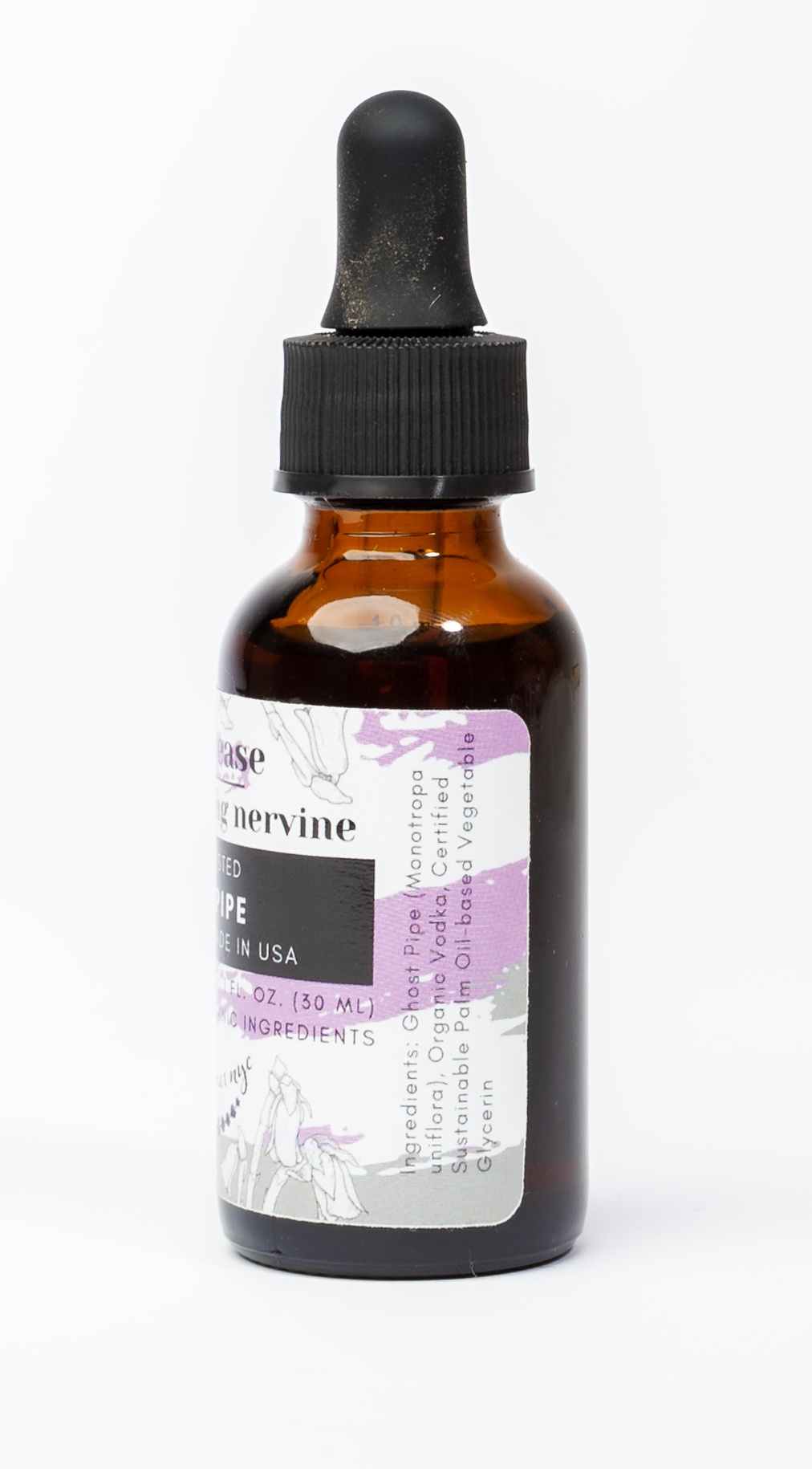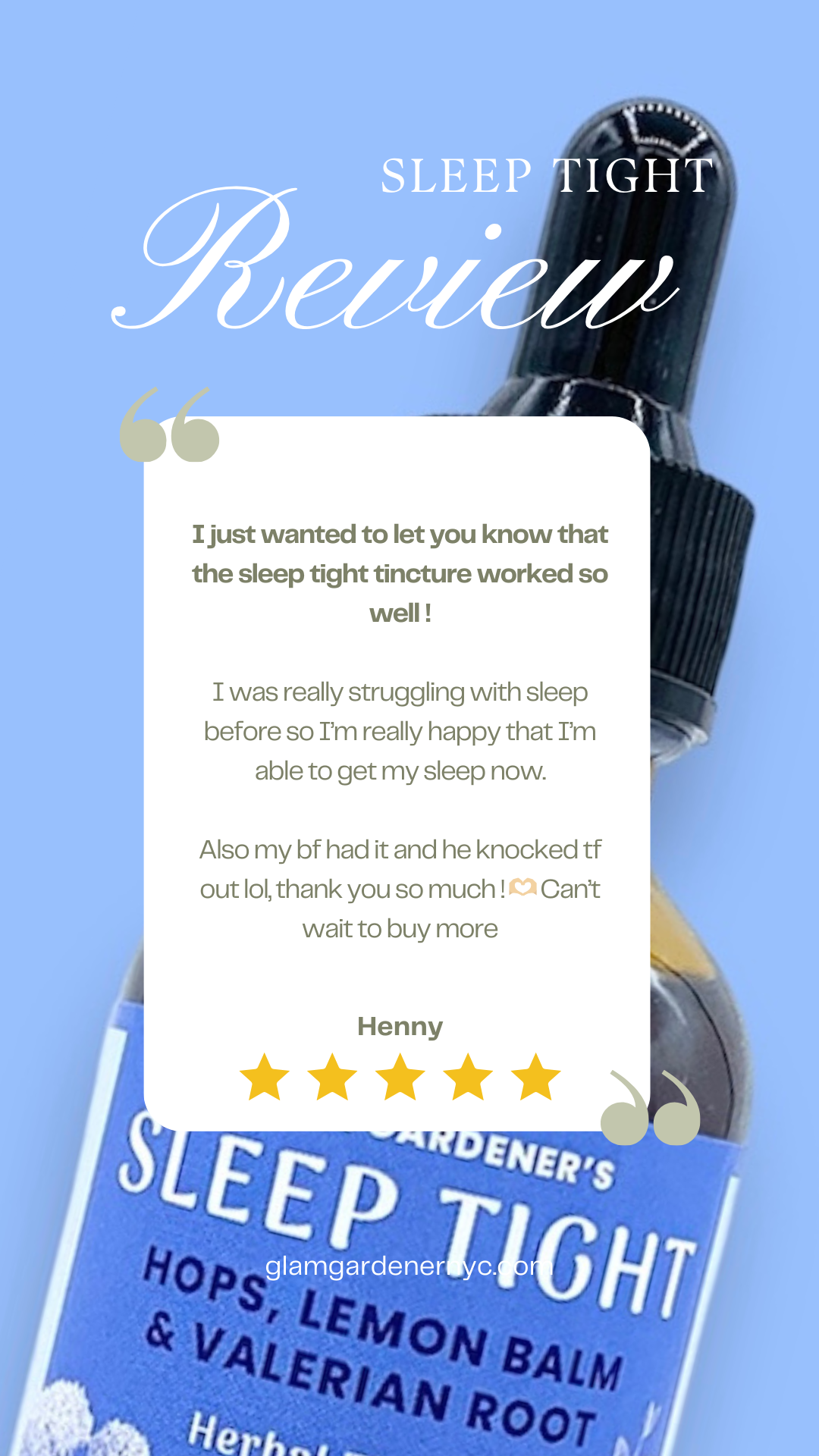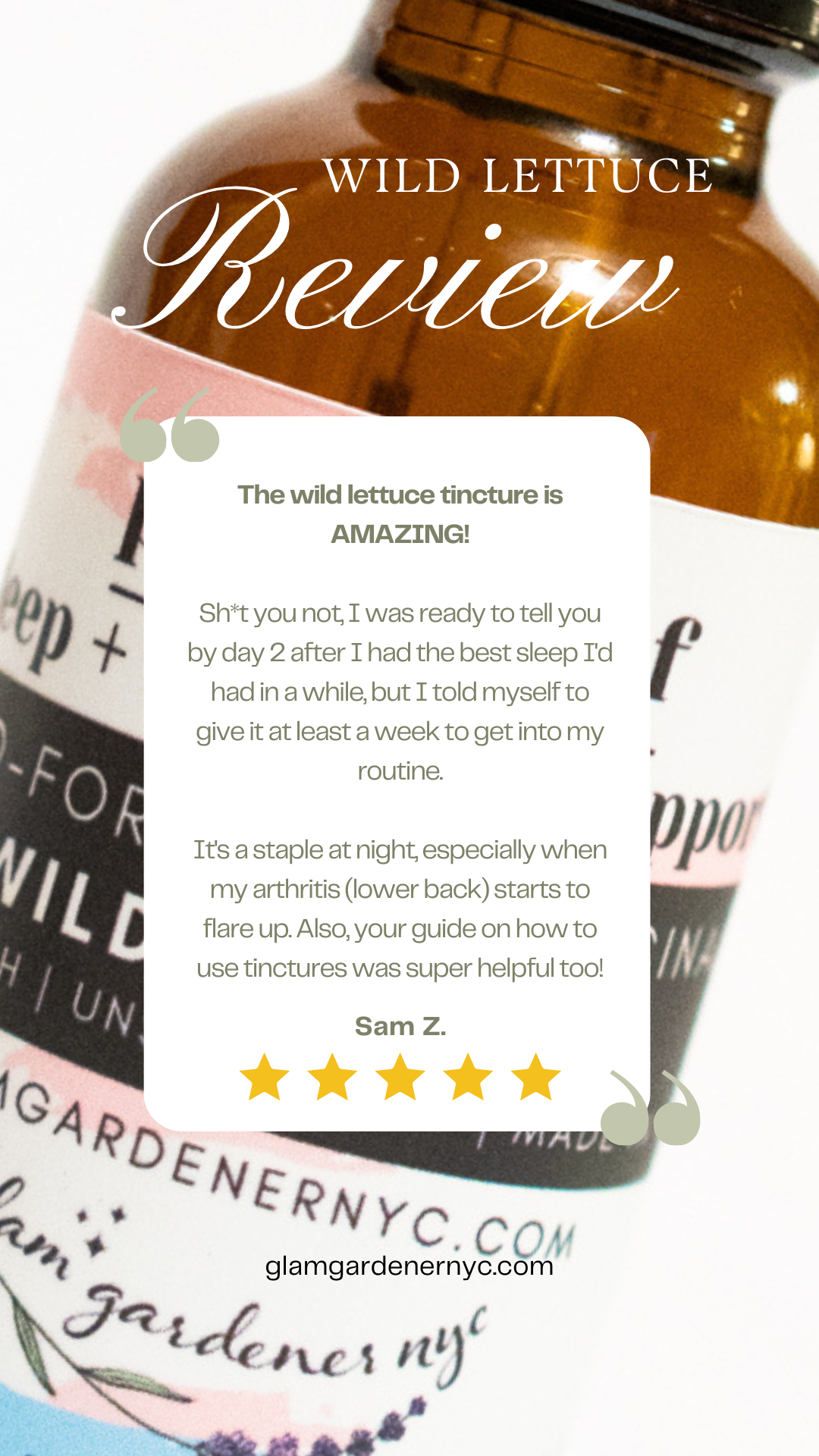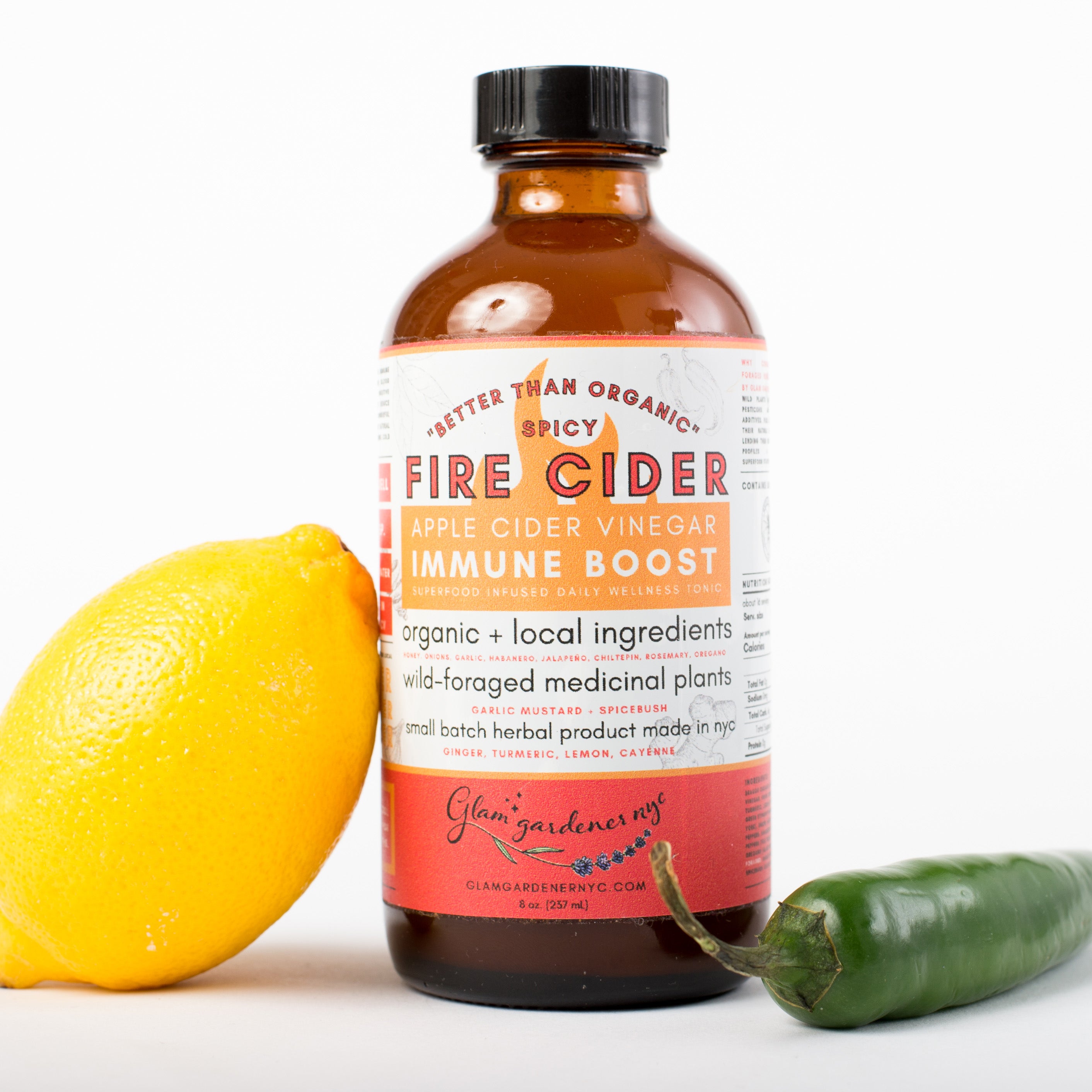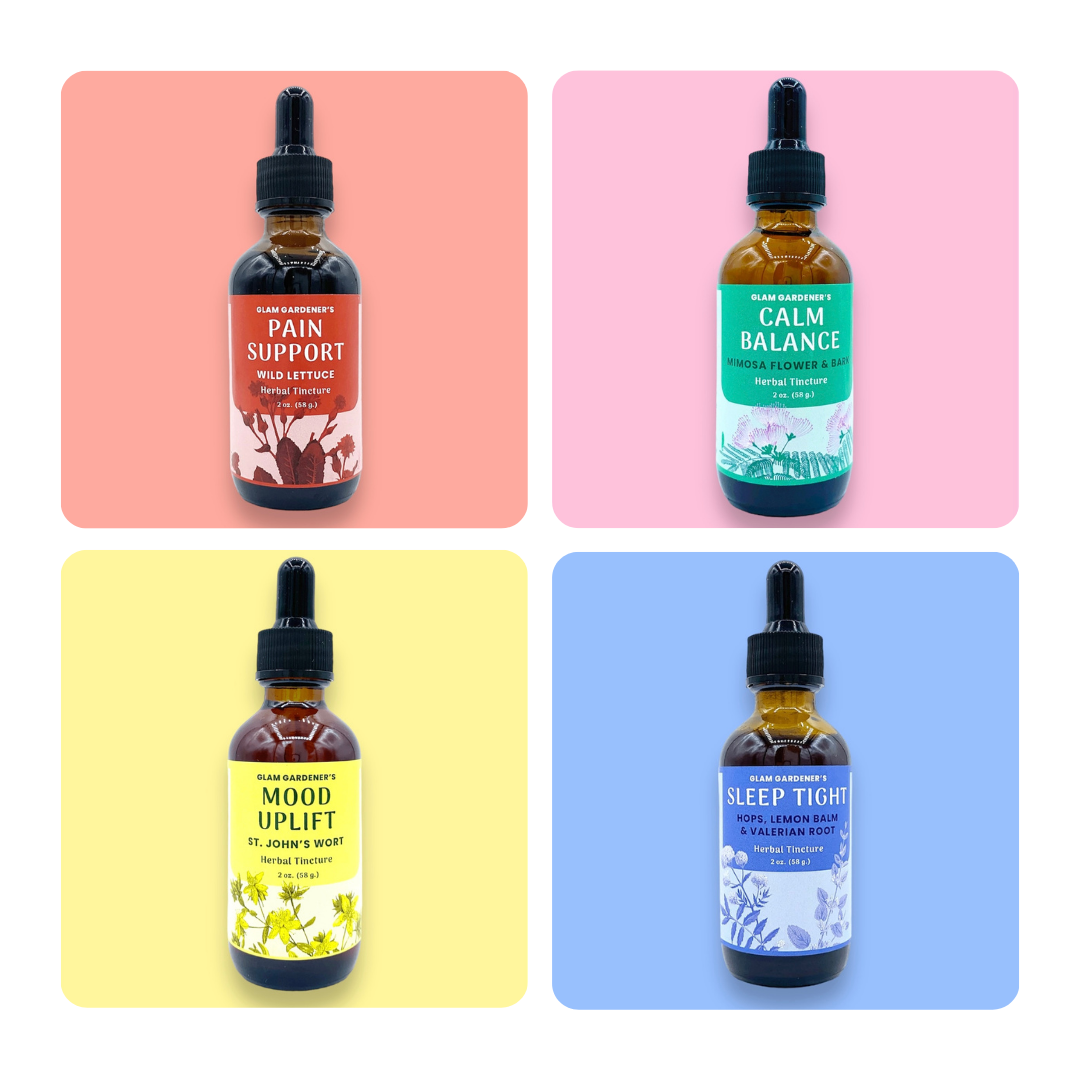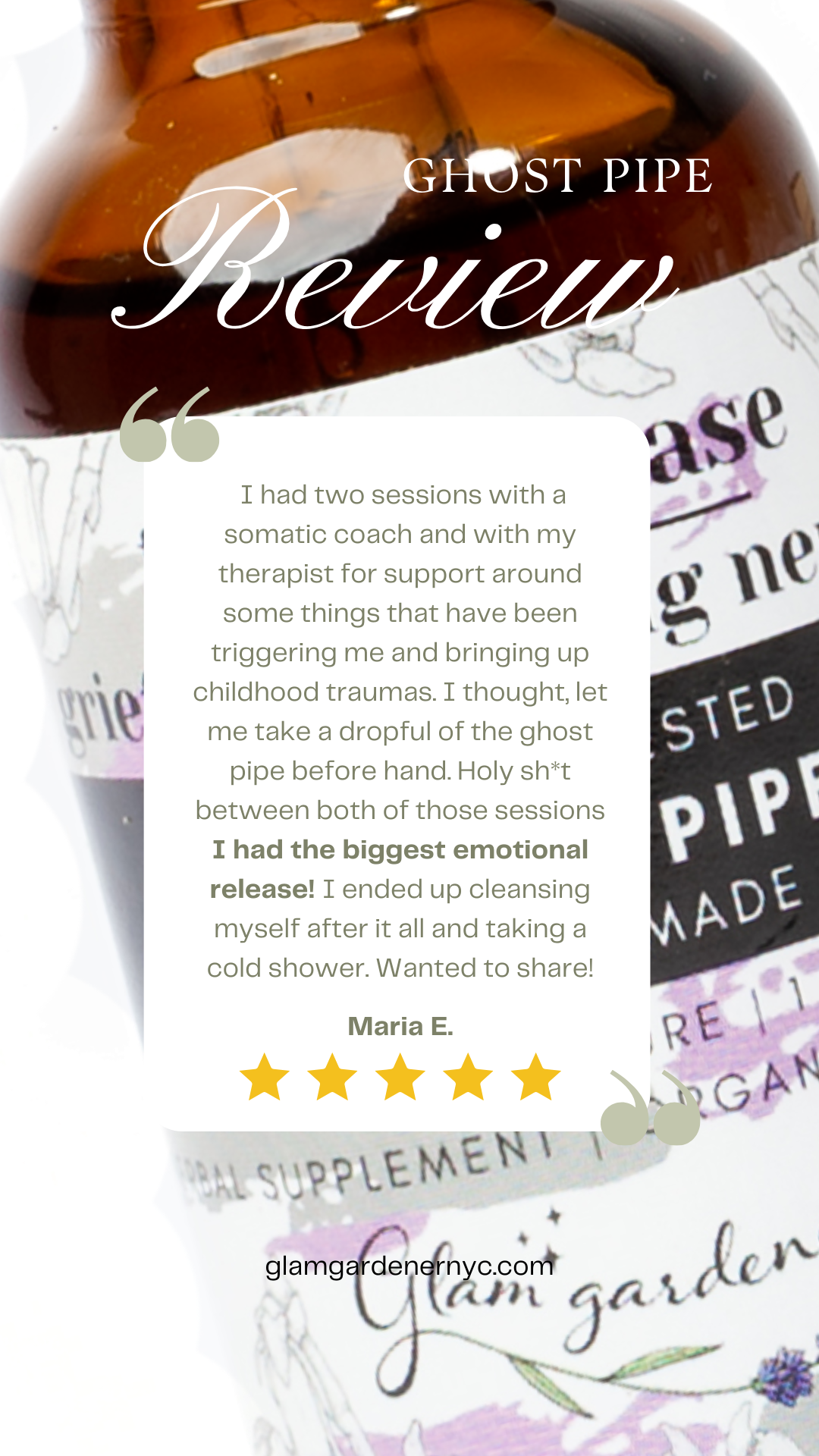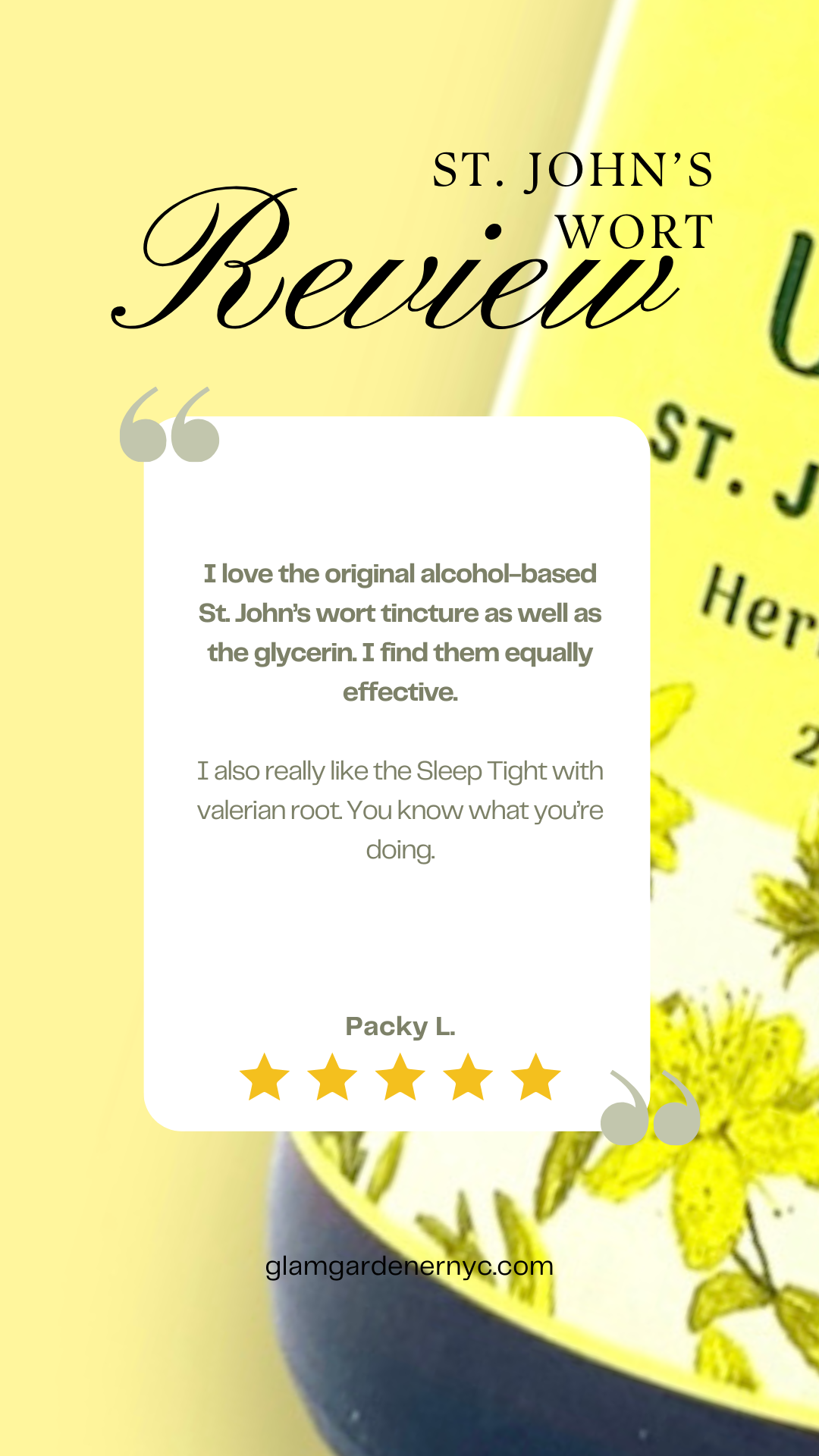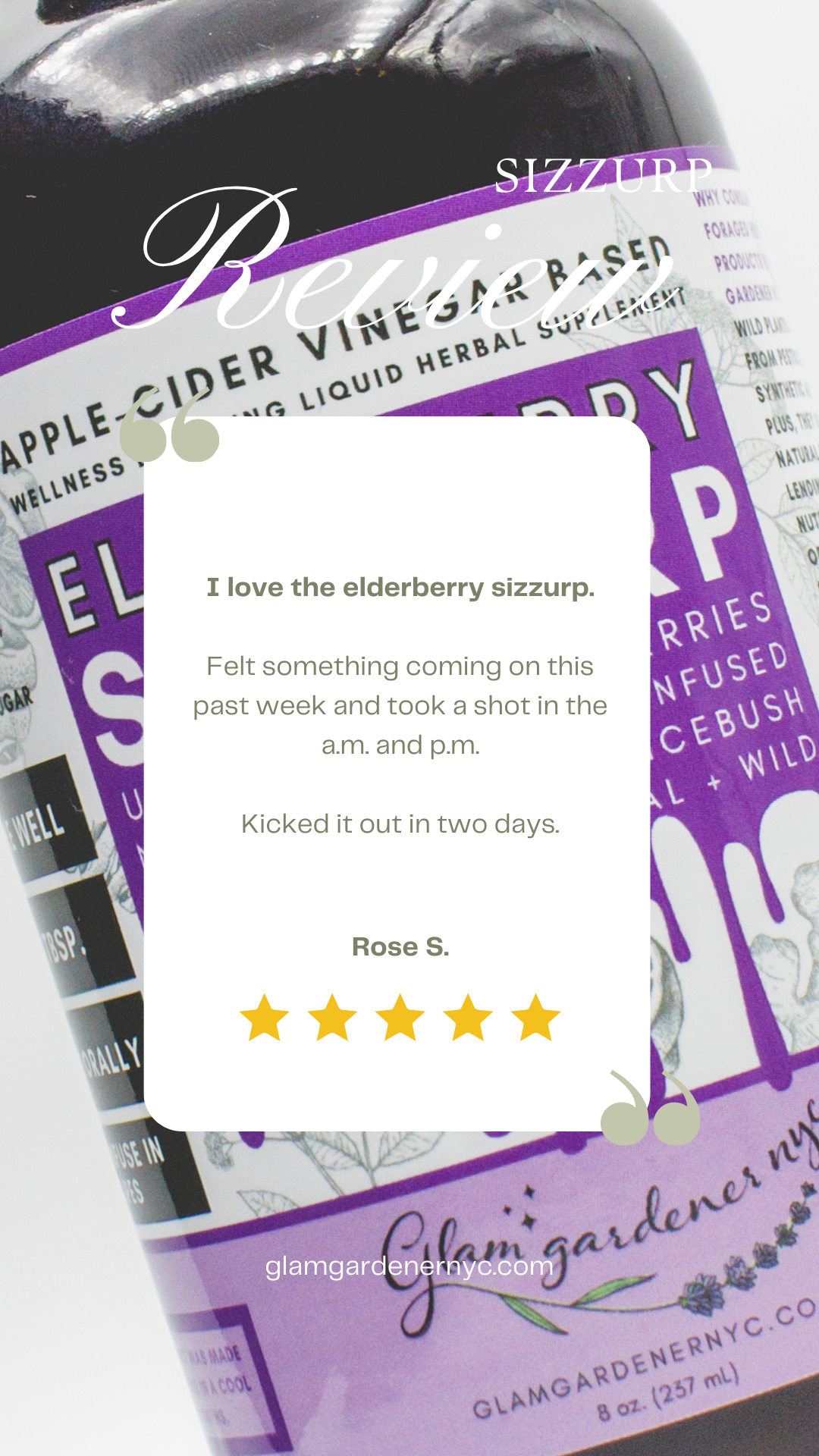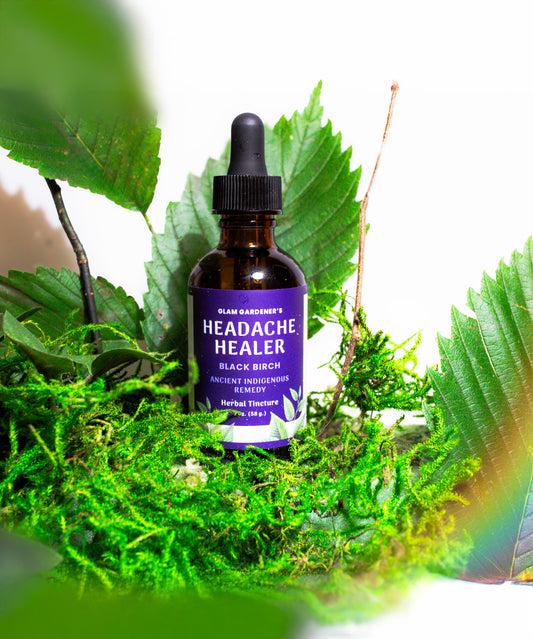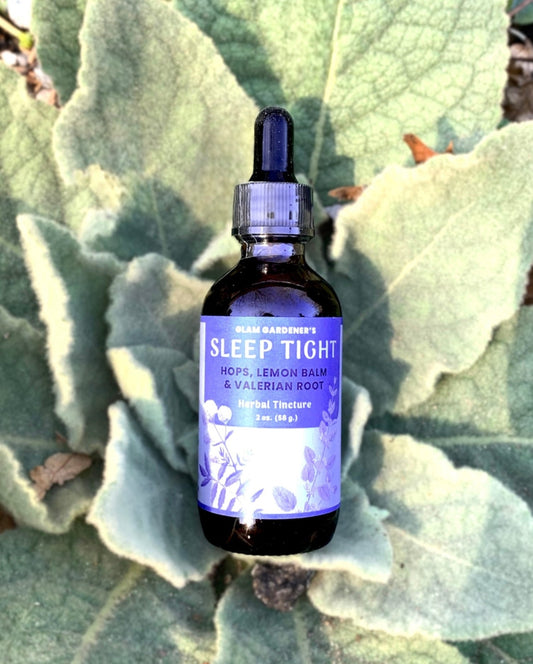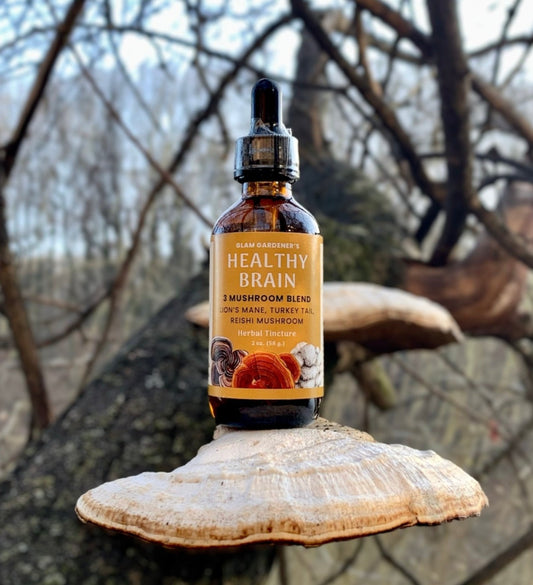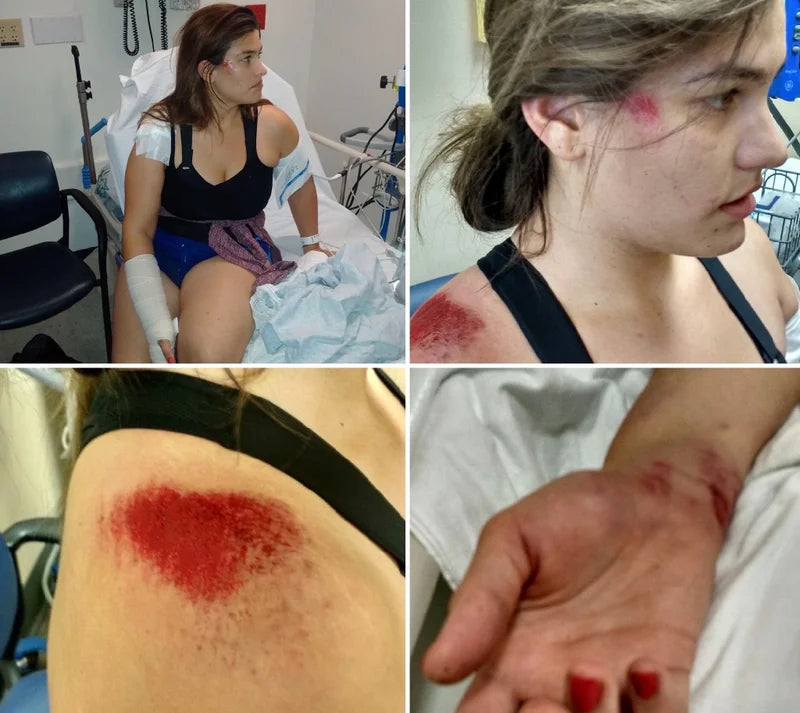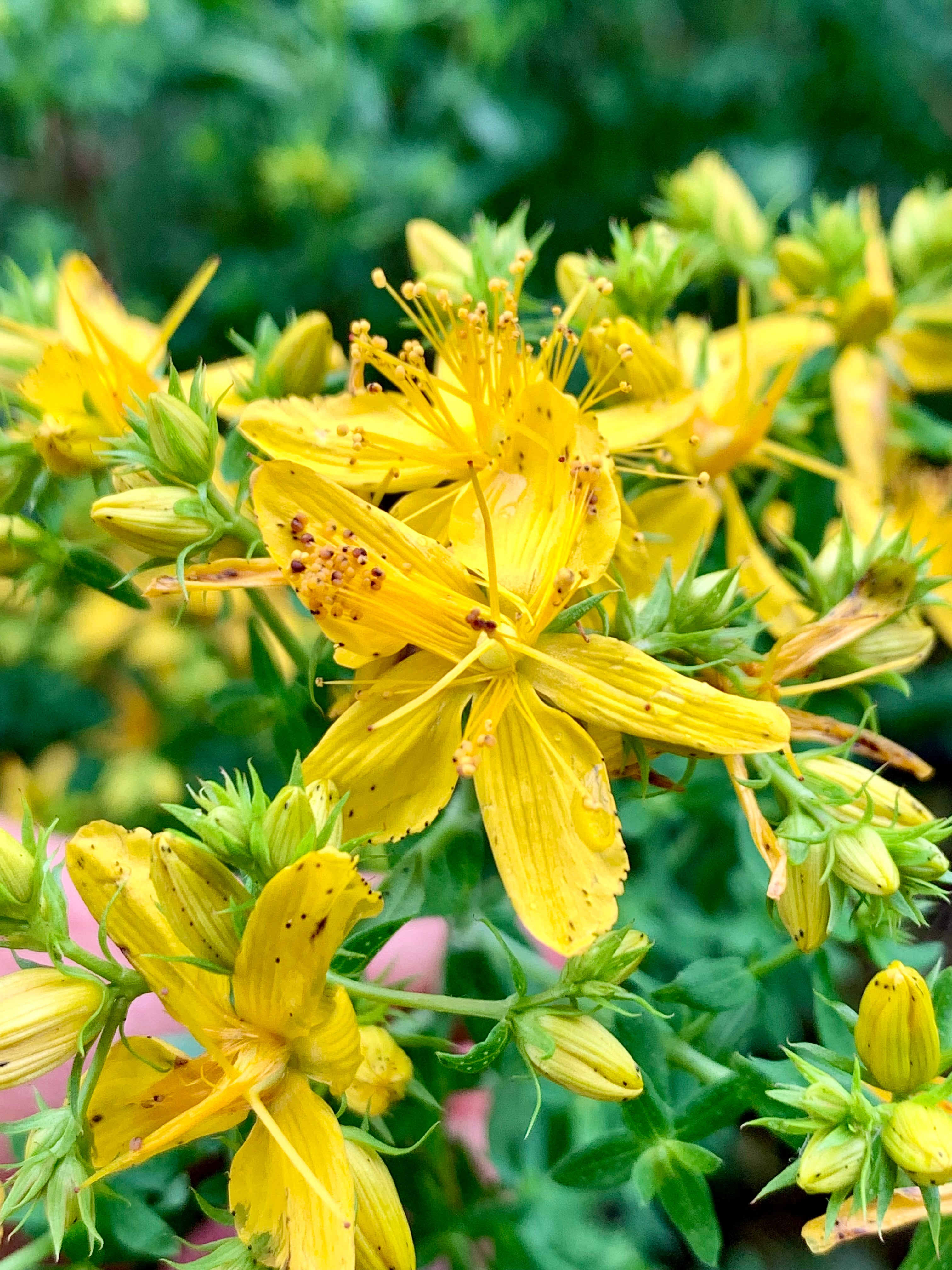What are tinctures? Their benefits, uses, and how to make tinctures.
A guide by herbal tincture maker, Glam Gardener.
Glam Gardener tinctures are always crafted with wild-harvested and organic ingredients to make the highest-quality tinctures available in our region.
We use methods based on ancient wisdom and modern science to craft herbal tinctures with intention that work.
What are tinctures and how are they made?
Tinctures are concentrated herbal extracts made by infusing plants in alcohol, vinegar, or vegetable glycerin. Tinctures have been around for millennia and are a key component of herbal supplementation.
The liquid portion of the tincture is called the menstruum. The purpose of the menstruum is to extract the medicinal plant's properties.
The result of a ready-to-take tincture only contains the liquid portion. Tinctures are concentrated extracts, thus they are often sold in small dropper-top bottles, like ours.
At Glam Gardener, we harvest and source fresh medicinal plants like Ghost Pipe, Wild Lettuce, Lion's Mane, Reishi, Turkey Tail, Mullein and Motherwort, then craft them into herbal tinctures for natural remedies.
Tinctures offer a liquid form of supplementation that is easy to take orally directly under your tongue or infused into your favorite cup of tea, smoothie, or health elixir.
Here's a simple recipe for how to craft tinctures.
1. Design your tincture recipe with a medicinal plant in mind. Perhaps you want to design a natural sleep remedy, so you choose Hops, Lemon balm, and Valerian root for their relaxation-promoting qualities.
2. Get a glass jar with a top. Fill a glass jar with plants of your choice.
3. Choose your menstruum. Alcohol, apple cider vinegar, or vegetable glycerin are 3 common choices. You can also use honey if you want to make an infused honey, rather than a traditional tincture.
4. Fill up the glass jar with your menstruum of choice to the tippy-top of the jar.
5. Important: before you seal the top on your jar, note that alcohol and vinegar do not mix well with metal. They will rust metal. You do NOT want rusted metal in your tincture.
So separate your recipe from any metal top with wax paper, or plastic wrap (although I would urge you to avoid plastic for toxicity reasons). Or use a glass jar with a glass top.
6. Shake, shake, shake señora! Share your tincture daily for about 6 weeks. Store it in a cool and dark place like your kitchen cabinet.
7. Strain your tincture. After 6 weeks, you'll surely notice that the color of your elixir has changed. It's time to strain the plants from the liquid. Pour the liquid over a strainer into another glass jar, so that it only contains liquid.
8. Voila! This is your tincture. Label it. Trust me, label it. You won't remember what it is in 6 months. Everyone makes this mistake. Depending on your menstruum, your tincture will last anywhere from 1-5 years, which we'll explain in greater detail below.
Of course, this process can be much more complex, depending on the plants or mushrooms that you are working with.
But this basic recipe is a good guide for beginners.
Next, we'll go into the pros and cons of different menstruums. Psst... if you're interested in creating a long-lasting tincture, shelf life is included in the next section.
Pros and cons of different kids of menstruums: Alcohol, vegetable glycerin, and apple cider vinegar.
To keep it simple, we'll list some of the most prominent pros and cons of each type of menstruum.
Alcohol as a tincture menstruum. The Pros:
- Alcohol extracts most of the plant's properties, resulting in a stronger tincture
- Alcohol extracted tinctures are one of the oldest ways of making natural remedies
- Some of the plant's properties can only be extracted via alcohol
- When extracted via alcohol, you can also "double extract" your tincture with an additional step. We won't go into the specifics in this article (We'll save that for Tincture Crafting 201). But it's sort-of like making a super concentrated tea. Double-extraction is key for mushroom tinctures to extract the most out of their medicinal properties.
- The shelf life of alcohol tinctures are extremely long and can last up to 5 years.
- This is a shelf-stable tincture. It does not need to be refrigerated.
Alcohol as a tincture menstruum. The Cons:
- The taste can be harsh to say the least, especially because tinctures require a high-proof alcohol.
- Alcohol-based tinctures may not be suitable for those who are sober, pregnant, or children. The amount of alcohol in a serving of tincture is so incredibly minuscule. However, some may not feel comfortable consuming any kind of alcohol.
- You always want to use high-quality and organic ingredients when possible. Organic alcohol can be expensive or hard to find.
Apple Cider Vinegar as a tincture menstruum. The Pros:
- Apple Cider Vinegar is incredible for your health, especially in blends that contain the mother.
- Apple Cider Vinegar is readily available at nearly every grocery store.
- Apple Cider Vinegar can result in a strong and powerful tincture.
- The shelf life of apple cider vinegar tinctures are at least a year, due to the acidity of the menstruum.
- This is a shelf-stable tincture. It does not need to be refrigerated.
Apple Cider Vinegar as a tincture menstruum. The Cons:
- Have you tasted apple cider vinegar? It's tangy as ever to say the least. Some may have difficulty stomaching that taste, at least at first.
- Although apple cider vinegar is great for gut health and can actually help with reducing stomach acid, those who are sensitive to acid may not feel comfortable drinking apple cider vinegar.
Vegetable glycerin as a tincture menstruum. The Pros:
- Vegetable glycerin is basically sugar, resulting in a tasty tincture.
- This is a shelf-stable tincture. It does not need to be refrigerated.
- Vegetable glycerin tinctures are more suitable for children and those that are sober, because it does not contain any alcohol.
Vegetable glycerin as a tincture menstruum. The Cons:
- Vegetable glycerin is often made from palm. There has been a lot of ecological and labor concerns around palm products. If using vegetable glycerin, try to purchase eco-conscious, fair trade, and organic.
- Vegetable glycerin degrades quicker than alcohol and apple cider vinegar, reducing the shelf life of your tincture to less than a year.
All in all, the type of menstruum you use will depend on the medicinal remedy you are making.
If you are making a tincture for gut health, perhaps use apple cider vinegar for its added benefits. If you're making a tincture with medicinal mushrooms, it's best to use alcohol with a double-extraction method to make the most well-rounded tincture.
Now you might be wondering how to take herbal tinctures. We'll get into that next.
Glam Gardener offers tinctures and elixirs with alcohol, apple cider vinegar, or glycerin as its base.
How to take tinctures as herbal supplements.
Typically, tinctures are used as a supplement. They are not to be taken daily for an extended period of time. Rather, they are to be taken with a goal in mind.
For example, you might take your Glam Gardener Motherwort tincture for 9 days while you're experiencing PMS symptoms and on your menstrual cycle to help regulate your cycle and mood.
Much like you would take a "teaspoon" of cough syrup, you would take a "dropperful" of tincture.
We offer herbal tinctures in dropper bottles, which are glass bottles with a squeezable dropper vial on top for dosing out a dropperful.
- Shake your bottle well before using.
- Squeeze your dropper-top to fill it up with liquid.
- Ingest a dropperful of tincture orally. You can take your tincture directly under your tongue or by mixing it in water, tea, a smoothie, or health elixir.
- Repeat. Glam Gardener labels offer a serving size of 2-3 dropperfuls. This is a suggestive guide, not a dosing requirement.
Dosing your tinctures to achieve the desired effect will take research, listening to your own body, or consulting a health professional.
It is standard to take 2-3 dropperfuls of tincture in one sitting, and up to multiple times each day, depending on the remedy.
How to take herbal tinctures with your morning coffee
Are tinctures a medicine or a supplement and what’s the difference?
Ever wondered why your favorite herbal supplements say:
"These statements have not been evaluated by the FDA and are not intended to diagnose, treat, or cure any diseases."
Tinctures are considered dietary supplements by the United States government. Here's a little history as to why tinctures cannot be labeled as medicine.
All prescription and non-prescription drugs are regulated in the United States by the Food and Drug Administration (FDA). But in 1994, the Dietary Supplement Health and Education Act (DSHEA) defined dietary supplements as a category of food, which put them under more lenient regulations than drugs.
Because supplements aren’t considered drugs, the FDA does not mandate that tinctures or other supplements go through the strict trials and requirements that drugs do.
This doesn't mean that herbal supplements are not effective. It means that the FDA does not require sellers to prove the effectiveness of supplements.
This is a good and a bad thing. It's a good thing, because it opens the door for small makers and herbalists to craft supplements without being extremely cost-prohibitive. I'm talking multi-million dollar cost-prohibitive.
But it's a bad thing because there are amazing medical remedies that work for millions across the globe. Yet, there can be a lack of research verifying the benefits of natural remedies. This can prevent natural medicinal remedies from being taken seriously by health practitioners as medicines.
Also, these loose regulations open the door for many deceptive products on the market like flat tummy teas that don't work and prey on people with poor body image.
So how do we know that plants are effective as supplements?
At one point in time, tinctures and natural herbal remedies were the only medicine available. And that wasn't too long ago.
These ancestral remedies have been passed down through cultural traditions. We are lucky to have retained all of this knowledge about medicinal plants.
And not surprising to lovers of natural remedies and herbalists, many of the claims around medicinal plants have been verified by modern scientific research.
There is widespread global interest in using supplements as natural remedies. Thus, many naturopathic and scientific institutions publish research that suggests the effectiveness of plants as remedies.
In addition to clinical research, there’s plenty of traditional knowledge and anecdotal accounts of healing plants. Plants have been used as supplements by humans literally since humans were humans. It would be strange to deny the thousands of years of recorded and oral history that documents their uses.
For anyone interested in starting their learning journey into healing plants, two well-known bodies of ancient knowledge that include herbal thought are called Traditional Chinese Medicine and Ayurveda.
At Glam Gardener, we hope to offer the highest-quality herbal products, and we do that best with seasonal, wild, and medicinal plants and on a small scale.
We don't sell our products at giant distributors because we focus on quality, not scale. Our products often go out of stock, because we respect the limits of our harvests. We harvest and craft these remedies with our hands.
Our goal is to craft with quality and intention, and to teach you a little something along the way. Building connection, and co-creating a community of herbal warriors and self-empowered people.
We hope that you're one step closer to your tincture-crafting goals are we would love to have you be a part of the Glam fam!
What the Glam fam says about our herbal tinctures:
View Our Herbal & Mushroom Tinctures
-
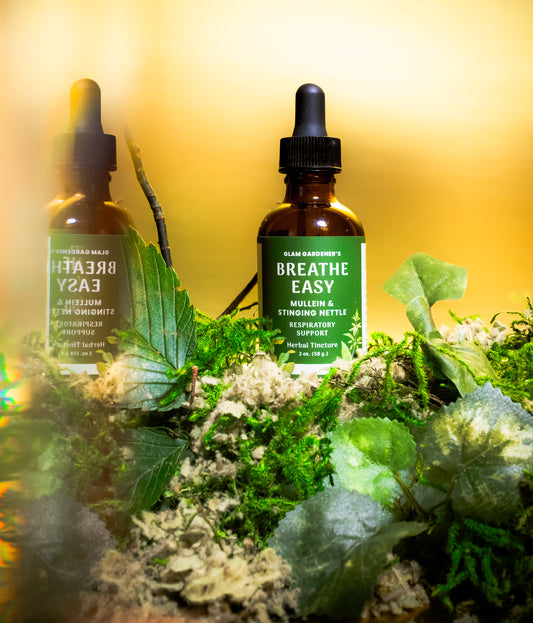
BREATHE EASY | Mullein & Stinging Nettle herbal tincture with organic & wildcrafted ingredients
Regular price $20.00 USDRegular priceUnit price / per$25.00 USDSale price $20.00 USDSale -
Headache Healer: Black Birch Herbal Tincture
Regular price $20.00 USDRegular priceUnit price / per$25.00 USDSale price $20.00 USDSale -
Sleep Tight: Hops, Valerian Root, and Lemon balm Herbal Tincture
Regular price $20.00 USDRegular priceUnit price / per$25.00 USDSale price $20.00 USDSale -
Healthy Brain: Lion's mane, Reishi and Turkey Tail Mushroom Herbal Tincture
Regular price $25.00 USDRegular priceUnit price / per
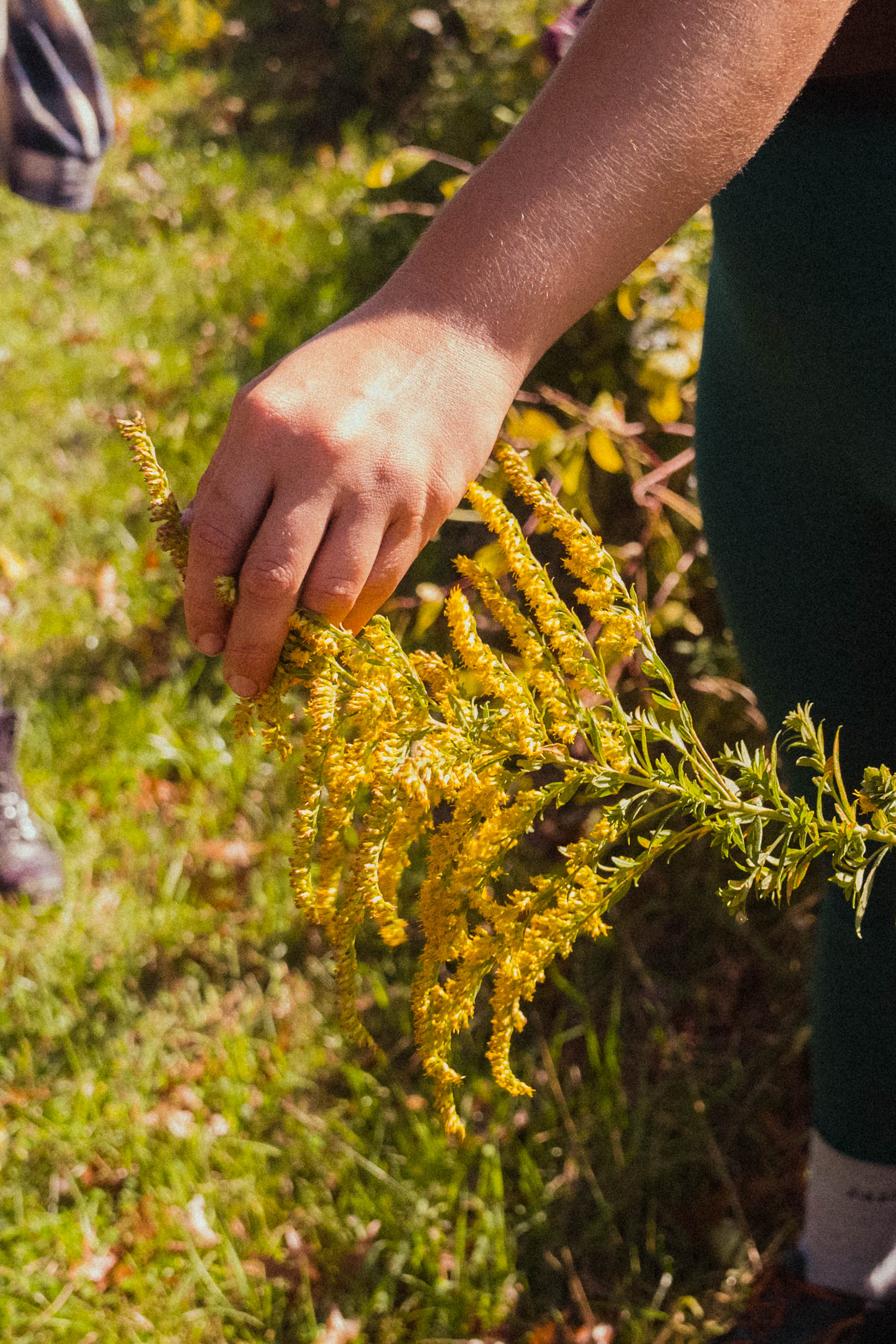
Join the Glam Fam
Join our email list for exclusive offers and the latest news.
